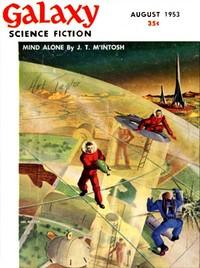Read this ebook for free! No credit card needed, absolutely nothing to pay.
Words: 28045 in 17 pages
This is an ebook sharing website. You can read the uploaded ebooks for free here. No credit cards needed, nothing to pay. If you want to own a digital copy of the ebook, or want to read offline with your favorite ebook-reader, then you can choose to buy and download the ebook.


: A History of the Third French Republic by Wright C H C Charles Henry Conrad - France History Third Republic 1870-1940
public powers ; the Constitutional Law of the previous day, February 24, relating to the organization of the Senate; the Constitutional Law of July 16, on the relations of the public powers. Subsidiary "organic laws" voted later determined the procedure for the election of Senators and Deputies. The vote of February 25 was the crucial one in the definite establishment of the Republican r?gime. The Constitution has undergone certain slight modifications since its adoption.
The Senate and Chamber, united in joint session as a National Assembly, were to choose a President for a definite term of seven years, not to fill out an incomplete term vacated by another President. The President could be re-elected. With the consent of the Senate he could dissolve the Chamber, but this restriction made the privilege almost inoperative in practice. He was irresponsible, the nominal executive and figurehead of the State, but all his acts had to be countersigned by a responsible Minister, by which his initiative was greatly reduced. In fact the President had really less power than a constitutional king.
The first elections under the new constitution resulted very much as might be expected: the Senate became in personnel the true successor of the Assembly, the Chamber of Deputies contained most of the new men. The Senate was conservative and monarchical, the Chamber was republican. Therefore, the President of the Republic entrusted the formation of a Ministry to M. Jules Dufaure, of the Left Centre, the views of which group differed hardly at all from those of the Right Centre, except in a full acceptance of the new conditions. Unfortunately, M. Dufaure found it impossible to ride two horses at once and to satisfy both the conservative Senate and the majority in the Chamber of more advanced Republicans than himself. He mistrusted the Republican leader Gambetta, though the latter was now far more moderate, and he sympathized too much with the Clericals to suit the new order of things. So his Cabinet resigned , less than nine months after its appointment, and the mar?chal de Mac-Mahon felt it necessary, very much against his will, to call to power Jules Simon. He had previously tried unsuccessfully to form a Cabinet from the Right Centre under the duc de Broglie.
The duc de Broglie remained, however, the power behind the throne. The President was under the political advice of the conservative set, whose firm conviction he shared, that the new Republic was advancing headlong into irreligion. The course of political events now took on a strong religious flavor. Jules Simon was a liberal, which was considered a misfortune, though he announced himself now as "deeply republican and deeply conservative." But people knew his unfriendly relations with Gambetta, which dated from 1871, when he checkmated the dictator at Bordeaux. It was hoped that open dissension might break out in the Republican party which would justify measures tending to a conservative reaction, and help tide over the time until 1880. Then the constitution might be revised at the expiration of Mac-Mahon's term and the monarchy perhaps restored.
The efforts of the Clerical party bore chiefly in two directions: control of education and advocacy of increased papal authority, particularly of the temporal power of the Pope, dispossessed of his states a few years before by the Government of Victor Emmanuel. This latter course could only tend to embroil France with Italy. So convinced was Gambetta of the unwise and disloyal activities of the Ultramontanes that on May 4, in a speech to the Chamber, he uttered his famous cry: "Le cl?ricalisme, voil? l'ennemi!"
Jules Simon found himself in a very difficult position. Desirous of conciliating Mac-Mahon and his clique, he adopted a policy somewhat at variance with his former liberal religious views. On the other hand, he could not satisfy the President, who had always disliked him, or those who had determined upon his overthrow. The crisis came on May 16, 1877, when Mac-Mahon, taking advantage of some very minor measures, wrote a haughty and indignant letter to Jules Simon, to say that the Minister no longer had his confidence. Jules Simon, backed up by a majority in the Chamber, could very well have engaged in a constitutional struggle with Mac-Mahon, but he rather weakly resigned the next day. Thus was opened the famous conflict known in French history, from its date, as the "Seize-Mai."
No sooner was Jules Simon out of the way than Mac-Mahon appointed a reactionary coalition Ministry of Orl?anists and Imperialists headed by the duc de Broglie, and held apparently ready in waiting. The Ministers were at variance on many political questions, but united as to clericalism. The plan was to dissolve the Republican Chamber with the co-operation of the anti-Republican Senate, in the hope that a new election, under official pressure, would result in a monarchical lower house also. The Chamber of Deputies was therefore prorogued until June 16 and then dissolved. At the meeting of May 18, the Republicans presented a solid front of 363 in their protest against the high-handed action of the mar?chal de Mac-Mahon.
The duc de Broglie, in view of this crushing defeat, was ready to withdraw, and Mac-Mahon, after some hesitation, accepted his resignation. Mac-Mahon's own fighting blood was up, however, and he tried the experiment of an extra-parliamentary Ministry led by General de Rochebou?t, the members of which were conservatives without seats in Parliament. But the Chamber refused to enter into relations with it, and as the budget was pressing and the Senate was not disposed to support a second dissolution, Mac-Mahon had to submit and the Rochebou?t Cabinet withdrew.
The new order of things was marked by the advent of another Dufaure Ministry, very moderate in tendency, but acceptable to the majority. Most of the high-handed doings of the Broglie Cabinet were revoked, much to the disgust of Mac-Mahon, who frequently lost his temper when obliged to sign documents of which he disapproved. Finally, in January, 1879, in a controversy with his Cabinet over some military transfers, Mac-Mahon resigned, over a year before the expiration of his term of office. Moreover, at the recent elections to the Senate the Republicans had obtained control of even that body. Thus he was alone, with both houses and the Ministry against him.
In spite of the unfortunate endless internal dissensions, France made great strides in national recovery during the Presidency of Mac-Mahon. His rank and military title gave prestige to the Republic in presence of the diplomats of European monarchies, the German crisis of 1875 showed that Bismarck was not to have a free hand in crushing France, the participation of France in the Congress of Berlin enabled the country to take a place again among the European Powers. Finally, the International Exhibition of 1878 was an invitation to the world to witness the recovery of France from her disasters and to testify to her right to lead again in art and industry.
The Presidency of Mac-Mahon shows the desperate efforts of the Monarchists to overthrow the Republic, and then to control it in view of an ultimate Restoration, either by obstructing the vote of a constitution or by hindering its operation. Throughout, the Monarchists and the Clericals work together or are identical. The end of his term of office found the whole Government in the hands of the Republicans.
FOOTNOTES:
Free books android app tbrJar TBR JAR Read Free books online gutenberg
More posts by @FreeBooks

: The Sword by Quattrocchi Frank Beecham Tom Illustrator - Science fiction; Short stories; Extraterrestrial beings Fiction; Human-alien encounters Fiction Science Fiction


: Planet of the Gods by Williams Robert Moore - Science fiction; Extraterrestrial beings Fiction; Human-alien encounters Fiction Science Fiction






